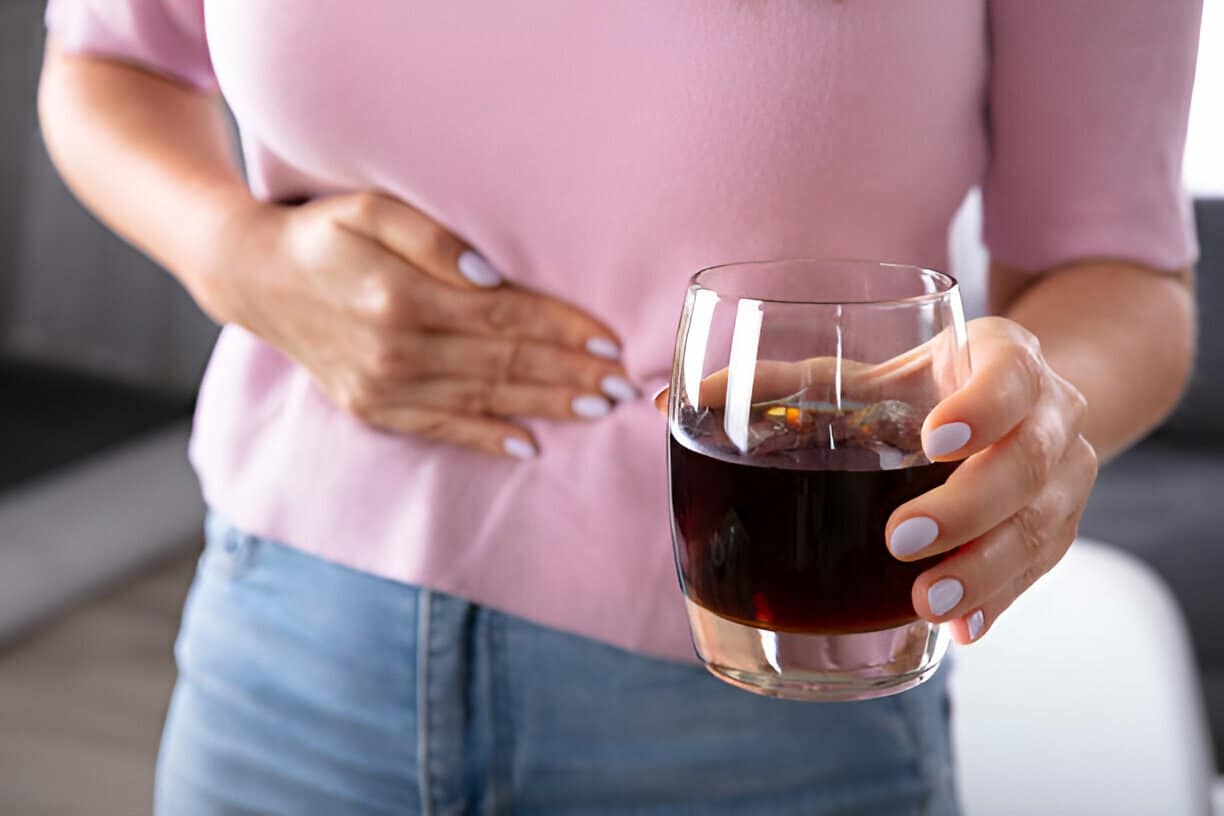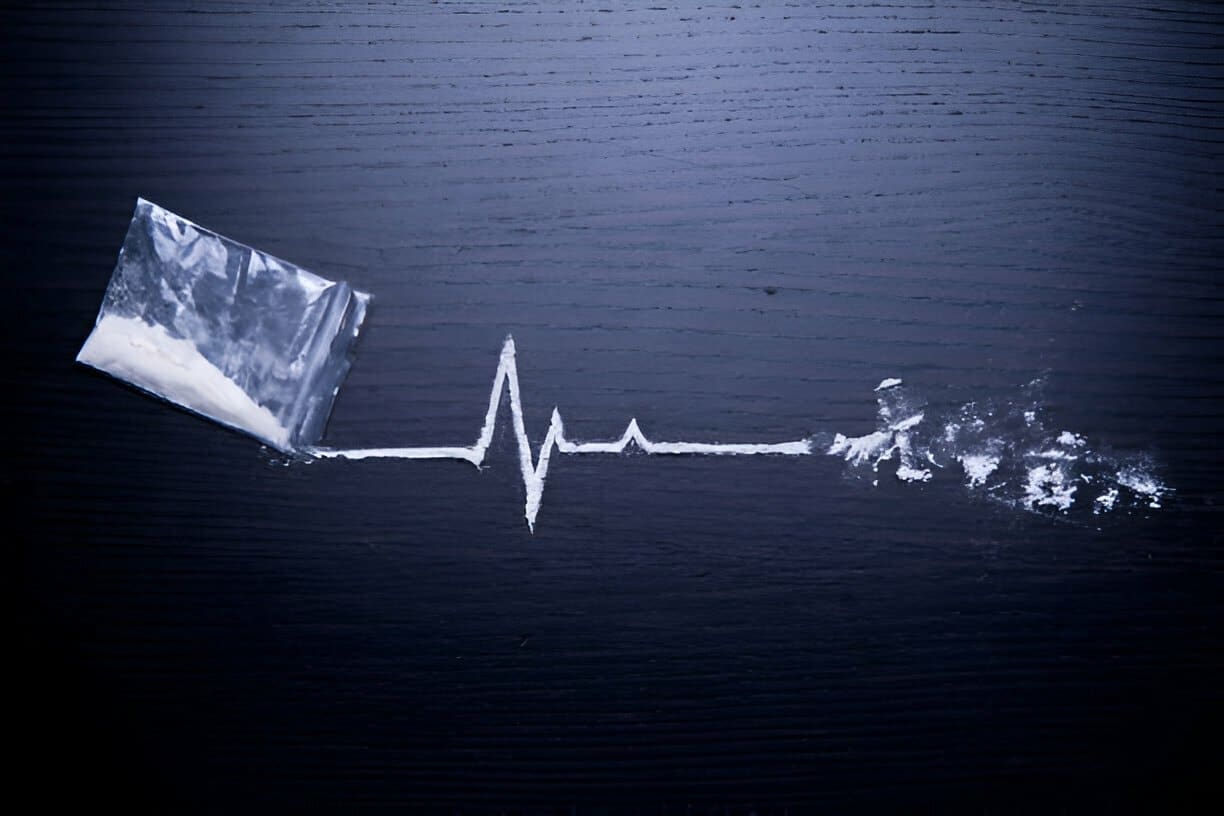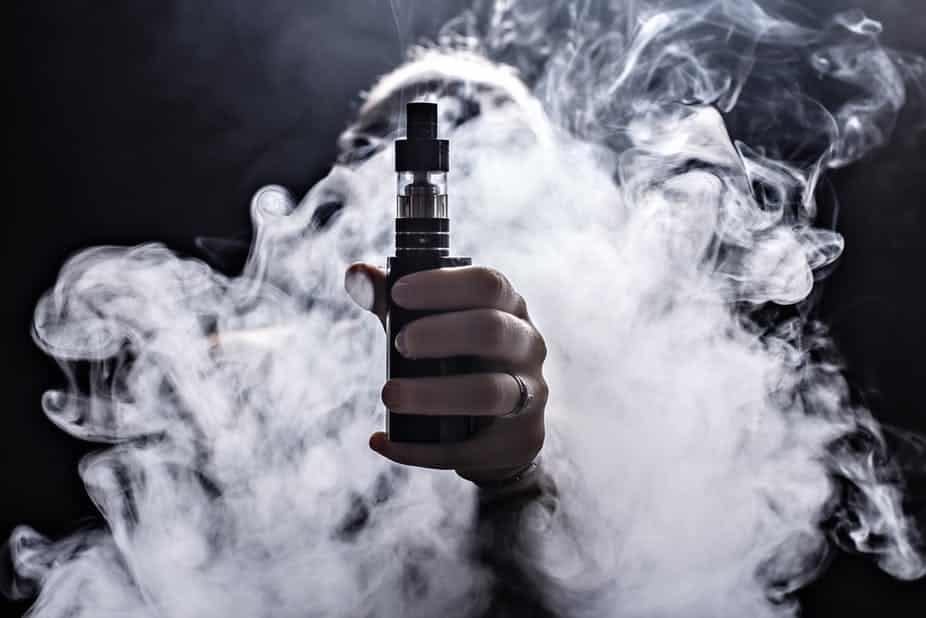Start exploring drug and alcohol rehabs today. Treatment providers are available to answer your questions.
Addiction is a biopsychosocial disorder marked by compulsive engagement in rewarding stimuli despite negative consequences, also defined as the inability to stop taking a substance or engaging in a behaviour despite being harmful to one’s mental and physical health.
Gambling, drugs, alcohol, and smoking are the most frequent forms of addiction, although anyone can get addicted to anything.
There is a distinction between drug addiction and drug misuse.
Misuse is defined as the use of a substance in excessive amounts or in improper contexts, which can result in health and social issues. Not everyone who misuses a substance has an addiction.
For example, a person who consumes a large amount of alcohol on a night out may experience both the euphoric and harmful effects of the substance; however, this does not constitute an addiction until the person exhibits “chronic, relapsing disorder characterised by compulsive substance seeking and continued use despite the harmful consequences, and long-lasting changes in the brain”, which constitutes the definition of addiction.
Despite the negative consequences, someone with an addiction will continue to abuse the substance or do the action.

According to a UK addiction organisation, one out of every three persons on the planet suffers from an addiction. Addiction can manifest itself as a substance or a behaviour.
Drug and alcohol addictions are the most well-known and dangerous. According to research, more than two-thirds of people with drug addiction also abuse alcohol.
Addiction to physical substances, particularly psychoactive ones such as alcohol and opioids, is referred to as substance addiction. Prescription drugs can also lead to addiction. Psychoactive drugs can create transitory chemical changes in the brain, leading to tolerance, dependency, and eventually addiction. In this instance, people grow reliant on the chemicals included in the drugs or those in the brain influenced by them.
Even though alcohol is a legal and commonly available substance, when overused, it is very addicting and dangerous. It is the most misused substance in the UK, with more than 7% of adults in England frequently drinking more than the Government’s recommended consumption limits of fourteen units per week.
Alcoholism can have terrible implications for people who are addicted and those who love them. It has also been connected to relationship issues, unemployment, poverty, criminality, homelessness, bad health and premature death.
The good news is that medical detox and rehabilitation programmes for alcohol addiction are available in both inpatient and outpatient settings. Because most people develop physical alcohol dependence, the initial stage is nearly often a medical detox at a specialised facility where the physical aspects of the condition are handled.
Rehabilitation and aftercare should follow detox programmes. Rehabilitation is the process of handling the behavioural and emotional problems that arise from the condition and are not addressed during detox. This includes determining the core causes of alcoholism and taking preventive measures to avoid relapse.
Although most people associate the term “drug addiction” with illegal narcotics like heroin, cocaine, or crystal meth, it can also refer to dependency on prescription or over-the-counter medications. Drug addiction can result in both physical and psychological dependency on a particular substance, and it has the potential to devastate the lives of many people.
Those suffering from serious drug addiction may find it challenging to devote time to what they used to enjoy, including their family and friends. The obsession may take control, and the affected person risks losing everything they previously valued.
Drug addiction can also have a negative influence on relationships with loved ones and health and financial issues. Because of their desperate desire for a specific substance, some people end up with nothing. Others frequently suffer from a variety of mental and physical health issues.
Addiction does not go away on its own; it requires professional assistance, which is usually delivered in a dedicated facility that offers both detox and rehabilitation services. Rehab programmes are designed to get to the bottom of an individual’s addictive behaviour and provide them with the tools they need to return to independent sober living and stay sober in the future.
Gambling, sex addiction, and gaming addiction are all examples of behavioural addiction. While gambling is the only legally recognised behavioural addiction, many psychologists and other healthcare experts think that behavioural addictions should be officially recognised because they can induce anxiety, rejection, depression, shame, and other negative emotions. The majority of the other types of addiction have now been labelled as “disorders.”

Don’t go through the process of recovery alone. Treatment providers can answer your questions. Get in touch with one today.
Call 0800 999 1083 today!
Eating disorders are mental illnesses that manifest themselves in a variety of ways. Most people are familiar with anorexia, a condition in which the individual aggressively restricts their calorie intake to lose weight. To maintain low body weight, some people with anorexia restrict entire food groups, while the majority exercise intensely and use laxatives.
Bulimia and binge eating disorders are two other forms of eating disorders. In the case of bulimia, individuals tend to cycle between binge eating and purging. To get rid of the excess calories they’ve consumed, individuals may force themselves to puke or take laxatives. Binge eaters do not stop eating after a binge.
The majority of people who suffer from eating disorders have low self-esteem. They may try to conceal their eating habits and become defensive when confronted. Even when it is blatantly clear to everyone else, admitting to having a problem can be difficult.
Because eating disorders are mental health issues, the individual will be treated with various psychotherapy interventions. It’s also essential to figure out what’s causing the problem and teach the person how to have a healthy relationship with food.
People who are addicted to eating will have a challenging connection with food and their body image. They may overeat because they are dealing with low self-esteem or unresolved problems, causing them to feel stressed and unhappy. Those who suffer from food addictions (such as sugar addiction, binge eating disorder, overeating, and others) may take considerable measures to conceal their condition from others. They may quit eating with others and make a list of excuses why they will eat later, or they may tell loved ones that they have already eaten because they are terrified of being detected.
Those suffering from binge eating disorder may feel unable to resist their food cravings, and their capacity to restrict themselves may be lost. Their bodies and minds crave the effects of food, often to the point where it would be considered odd if observed by others.
Food addictions can have a terrible effect on someone’s mental and physical health, and patients often seek professional assistance to overcome their negative attitudes about food. Counsellors and therapists will work closely with patients to determine the source of their condition and assist them in restoring healthy eating habits.

Gambling addiction is often regarded as a secret addiction because affected people show very few physical indicators. It’s possible for a gambling habit to quickly spin out of control without anybody else noticing the severity of the problem.
It has never been easier to bet in secret because most people now have access to the internet via mobile devices such as laptops, tablets, and smartphones. Additionally, with the numerous online gaming sites, you can bet 24 hours a day, seven days a week.
A gambling addiction can ruin individuals’ and their family members’ lives. It can also have a negative impact on the broader community and economy, with many gambling addicts turning to crime to fund their addiction.
If they do not get the support, they need to overcome their addiction, gambling addicts frequently lose their families, jobs, and homes. Professional counsellors and therapists can help gambling addicts overcome their disorders using various therapy options. Rehabilitation programmes are often either inpatient or outpatient, depending on the needs of the individual, although both are useful in helping the individual overcome the addiction.
Many people find it difficult to comprehend that some people suffer from sex addiction. Many jokes have been made about this condition over the years, but the truth is that sex addiction isn’t just a word for those who need an excuse to have a lot of sex or affairs. Sex addiction is a serious issue that has damaged many people’s lives all over the world.
Sex addiction can have several components, including harmful masturbation, pornography, prostitution, or voyeurism.
Sex addiction can have a significant negative impact on a person’s life. Those afflicted frequently have low self-esteem and may have difficulty setting healthy limits. They are commonly involved in abusive relationships and risk being emotionally or sexually deprived.
To help sex addicts resolve their troubles, experienced counsellors or therapists will use a variety of strategies such as cognitive behavioural therapy, dialectic behavioural therapy, individual counselling, and group therapy. Inpatient programmes are frequently selected because they offer complete isolation from the outside world.
Addictions can start for a variety of reasons. In the case of drugs, alcohol, and nicotine, these substances impact your physical and emotional well-being. These feelings can be pleasurable, and they might lead to a strong desire to use the substances again.
After a win, gambling can produce a comparable mental “high,” followed by a strong desire to try again and recreate that experience. This can quickly become a habit that is difficult to break.
When you’re addicted to anything, not having it creates withdrawal symptoms, sometimes known as a “coming down.” Because this is uncomfortable, it is easier to keep having or doing what you want, so the cycle continues. An addiction can spiral out of control if you need more to satisfy a craving and experience the “high.”
Pleasurable activities are all experienced in the brain in the same way, through releasing the neurotransmitter dopamine in the nucleus accumbens, a specific region of the brain. The reward centre of the brain is located here. The amount and speed with which dopamine is released in response to a particular activity or substance are directly tied to the likelihood that it may lead to addiction. Cocaine, amphetamines, and “legal highs,” among other addictive substances, work by artificially flooding this brain area with dopamine. Smoking or injecting a stimulant causes a faster dopamine release than ingesting a tablet, making the chemical more addictive to the brain.
Substances and behaviours that are addictive can produce a pleasurable “high” that is both physical and psychological. To reach the same high, you’ll usually take more of particular substances or engage in behaviours for more extended periods. It becomes increasingly harder to break free from addiction over time.

Addiction can strike people of any age, gender, or socioeconomic level. Certain factors can influence the likelihood and speed with which an addiction develops, such as:
Drug addiction occurs in certain families and is most likely caused by a hereditary predisposition. You’re more likely to acquire a drug addiction if you have a blood relative with an alcohol or drug addiction, such as a parent or sibling.
You’re more likely to become addicted to drugs if you have a mental illness like depression, attention deficit hyperactivity disorder (ADHD), or post-traumatic stress disorder. Drug use can become an attractive coping mechanism for painful emotions like anxiety, despair, and loneliness; however, it can exacerbate these issues.
Experts believe that early and repeated exposure to addictive drugs and behaviours play a crucial role. Childhood drug use can induce alterations in the developing brain and raise the chances of developing a drug addiction. However, just because addiction runs in the family does not guarantee that a person would succumb to it.
Some drugs, such as stimulants, cocaine, or opiate painkillers, might lead to addiction more quickly than others. Addiction can be exacerbated by smoking or injecting drugs. However, taking substances that are thought to be less addictive — so-called “light drugs” — might also set you on the path to addiction.

Genes are thought to be responsible for about half of the risk of developing a substance abuse disorder. A gene that controls how brain receptors receive dopamine is one genetic issue that could explain some aspects of addiction. This may increase somebody’s susceptibility to the dopamine rush that leads to addiction. The way the body reacts to stress could also be a genetic element. Someone more resilient may be less likely to acquire a substance abuse problem.
Two people may have the same gene, but one expresses that gene in a specific way, such as developing an addiction, while the other doesn’t. This area of study is known as epigenetics, and there has been a lot of interest in how epigenetics can help us better understand addiction in recent years. Epigenetics is the study of how our environment and upbringing can affect how our genes are ‘expressed,’ or how they manifest in actual behaviour and outcomes. Surprisingly, some research has found that epigenetics can be transmitted to offspring, altering our children’s behaviour.
Certain aspects of a person’s family life can impact their vulnerability to substance abuse problems. Growing up lacking parental support and having relatives with substance abuse difficulties increases the risk. Emotional, physical, or sexual abuse and a poor child-parent relationship enhance the chance of a person developing substance abuse problems. Accessibility is another environmental issue to consider. Having easy access to substances, such as alcohol, raises the likelihood of forming a regular relationship with the substance, leading to addiction. People’s social circles have a significant influence on them, and being around ‘bad influence’ peers who abuse substances raises the likelihood of developing an addiction.
Don’t go through the process of recovery alone. Treatment providers can answer your questions. Get in touch with one today.
Call 0800 999 1083 today!
Before delving into the various kinds of addiction, it’s vital to comprehend a few basic concepts about addiction, such as:

Addiction wreaks havoc on the brain’s regular functions, mainly the reward system.
This reward system releases the neurotransmitter dopamine and other chemicals when you do something you enjoy, whether it’s hanging out with your closest buddy, drinking a bottle of wine, or using cocaine.
Dopamine does not appear to induce sensations of pleasure or euphoria, contrary to popular beliefs. Instead, it seems to reinforce your brain’s association of particular objects with feelings of pleasure, encouraging you to seek them out again in the future.
Cravings for the substance or behaviour can be triggered by the desire to feel this high again, especially when you face the same triggers (like a party where people are drinking, for example). Cravings are sometimes the first indicator of addiction.
Your brain manufactures more dopamine as you continue to use a substance or engage in a behaviour. It eventually realises that your brain already has plenty of dopamine and begins producing less in response to regular triggers.
There’s only one catch: your brain’s reward system still needs the same amount of dopamine to work properly.
You’ll soon need to consume more of the chemical to compensate for what your brain isn’t producing. Tolerance is the term for this effect.
It’s natural to lose interest in hobbies and other activities as an addiction develops.
This occurs when your brain no longer creates enough dopamine in reaction to natural stimuli such as sex or creating art.
Even if you desire to stop taking a substance or indulging in a habit, you may feel as if you need them to feel good about yourself.
Addiction is characterised by an inability to control the use of substances or avoid specific behaviours. This can lead to a loss of employment, health problems, and relationship challenges, among other things.
As a result, you may decide to stop using the substance or engaging in the behaviour, only to find that you continue to fall short despite your best efforts.
Behavioural psychology explores two conflicting methods of control that can affect how someone interacts with addictive substances or activities. These are referred to as stimulus control and cognitive control, respectively.
Treatment that adopts a stimulus control method would strive to learn what kinds of stimuli the individual associates with their addiction. For example, if a specific location provokes powerful cravings, the work would involve aiding the person in developing plans and tactics to avoid visiting that location.
Cognitive control of behaviour refers to the cognitive techniques used to control behaviour to avoid the substance or activity to which they are addicted. Measures of cognitive control are impaired in those with addictions. Cognitive therapy educates and reinforces the critical cognitive abilities for coping with addiction.
Even if they are aware of the problems their addiction is causing, someone who is addicted will not change their behaviour. They may also show signs of a lack of control, such as consuming more than is intended.
The following are the most common signs of addiction:

Certain symptoms may occur when a person with an addiction stops using the substance or engaging in the behaviour. They vary according to the type of substance abused and the severity of the addiction.
For those who have grown physically dependent on a substance, abrupt withdrawal can result in various unpleasant symptoms and in rare circumstances, death.
Withdrawal symptoms may include:
The best method to avoid becoming addicted to a substance is to avoid using it at all. If your doctor prescribes a drug that has the potential to cause addiction, take it with caution and follow your doctor’s instructions.
Doctors should administer these medications in reasonable doses and quantities and closely monitor their use to ensure they are not given too much or too long. Consult your doctor if you believe you need to take a drug in a higher dose than suggested.
Take the following steps to help your children and teenagers avoid drug abuse:
Discuss the dangers of drug use and misuse with your children.
When your children talk about peer pressure, pay attention and encourage them in their efforts to reject it.
Don’t abuse alcohol or other addictive substances. Substance abuse is more likely in children whose parents use substances.
Make an effort to improve your relationship with your children. Your child’s chances of using or misusing drugs will be reduced if you and your child have a solid, secure bond.
The stress of dealing with an addiction can have a negative impact on your career and relationships. An addiction to a substance (for example, drugs or alcohol) can have significant psychological and physical consequences.
According to some research, a person’s chance of getting addicted is partially genetic, but environmental factors such as being around other addicts are also likely to raise the risk.
Substance abuse can be a technique of avoiding dealing with challenging circumstances. Unemployment, poverty, stress, and emotional or professional pressure contribute to addiction.
Addictions can drastically disrupt your daily life over time. They can cause long-term health problems and significant repercussions such as bankruptcy. People who suffer from addiction are prone to relapse and remission cycles. As a result, they may alternate between heavy and light use. Regardless of these cycles, addictions usually increase with time.
That is why it is critical for anyone suffering from an addiction to seek help. If you or someone you know is suffering from an addiction, call 0800 999 1083 for confidential and free treatment referral information.

If you don’t get help for your addiction, it might have long-term implications. These are some of the possible outcomes:
The effects of various substances and behaviours on a person’s health vary. Serious problems can lead to the termination of life due to health concerns or social conditions.
Even those who do not have an addiction problem can experience similar situations. However, when an addiction is present, these can become more common. Determine whether the problem is the product of a single occurrence or a growing addiction problem before approaching someone you suspect has an addiction.
Physical addiction appears to develop when a drug’s repeated use alters how your brain perceives pleasure. Some nerve cells (neurons) in your brain undergo physical changes as a result of the addictive substance. Neurotransmitters are substances that neurons use to communicate. These changes can last for a long time after you stop using the drug.
Consumption of one type of substance while also consuming another is known as multi-substance (or polydrug) use. This is frequently done to enhance a drug’s pleasure effects or to mitigate its adverse side effects, but it can also increase the risk of overdosing.
Because of the hazards associated with consuming numerous substances simultaneously, multi-substance addiction provides a unique challenge. When one illegal substance is used with another, the dangers are multiplied. Several studies from academic research institutions have demonstrated that using multiple substances damages the brain and severely negatively impacts memory and learning new information.
Comorbidity refers to the existence of two conditions simultaneously without naming one as the cause of the other. Mental health and substance abuse have a complex and intertwined relationship. Substance abuse can exacerbate mental health symptoms; for example, cannabis abuse has been connected to psychotic symptoms (the experience of hallucinations or delusions).
There is evidence that addiction and mental health problems stem from the same underlying factors, such as genetic predisposition or early trauma. Furthermore, some people experiencing symptoms of a mental illness may use substances to “self-medicate” (control their unpleasant psychological states by using substances such as drugs or alcohol), which may exacerbate the symptoms of poor mental health. This is considered to be especially prominent in people who have experienced trauma, such as childhood abuse or post-traumatic stress disorder.
Mental health and substance abuse are inextricably linked. A dual diagnosis refers to those who have both disorders. Some people may develop mental health issues due to their substance addiction, while others may try to self-medicate their mental health issues with chemical substances. What was once a more straightforward problem has become much more complicated, with the individual dealing with both mental health and addiction issues.
It’s relatively common to have two diagnoses. Many individuals with mental health issues also have drug misuse issues, making rehabilitation more difficult. Treatment is available in a physical detox followed by a rehabilitation programme.
While most inpatient rehabilitation programmes last six to eight weeks, those with a dual diagnosis may need to stay longer. If the individual is to make a full recovery, professional counsellors must address both the substance abuse and mental health issues.
A personalised plan of care will typically be created around the needs of the individual. It will involve a combination of traditional therapies such as counselling and therapy and holistic treatments that focus on the whole person.

The way a substance misuse disorder restructures your brain is one of the most damaging parts of the condition. Once the addiction has taken control, the person must deal with the substance’s mood effects, such as the highs and lows of ‘coming up’ and ‘going down’ from narcotics, violence or depression from alcohol use, psychosis and paranoia from cannabis, amongst others. Then they deal with the withdrawal symptoms. A person going through withdrawal may appear angry, even hostile, distracted and depressed. Finally, because of the changes in brain structure, daily tasks can feel pointless, uninteresting, and difficult to attend to.
Approaching someone suffering from this condition can be difficult and emotionally draining. Some treatment centres provide emotional advice and expertise during the initial intervention. People who care for or live with people who suffer from addiction should also seek help for themselves. Please read Compare Rehab UK’s resources or call us on 0800 999 1083 for suggestions on organisations that may be able to assist relatives and friends who are battling addiction.
It might be tough to tell the difference between normal angst and indicators of drug use. However, some signs indicate an addiction.
The following are some signs that your teen or another family member is abusing drugs:
After moving past experimentation or the early stages of addiction, a patient’s personality and behaviour are likely to change dramatically. At first, these adjustments may be sporadic.
Among the warning signs are:
Over time, you may notice an increase in isolation. Individuals who have an addiction tend to hang out with people who encourage them to continue their bad habits. When confronted, they may seek to justify their actions by making excuses.
Another way to spot addiction is to keep an eye on the person’s emotional and physical well-being. Their health will almost definitely deteriorate if they are addicted to a drug or behaviour.
The following signs can suggest changes in their health:
People addicted to drugs often reject that their addiction is serious and are hesitant to seek treatment. An intervention provides an organised chance for a loved one to make adjustments before things worsen, and it can drive someone to seek or accept treatment.
An intervention should be well-planned and carried out by family and friends in partnership with a doctor or other experts, such as a trained alcohol and drug counsellor, or guided by an intervention specialist. It may involve family and friends, coworkers, clergy, and others who are concerned about the addict and matter to the user.
During the intervention, these individuals come together to have a direct, heart-to-heart dialogue with the individual about the dangers of addiction and possible therapies.
All types of addictions can be treated. Treatment will be focused on assisting you or a loved one in quitting seeking and indulging in the habit. The best strategies are holistic since addiction impacts so many parts of life.
Medical advancements and diagnostic development have aided the medical community in developing numerous methods for managing and resolving addiction.
These are some of the methods available:
Addiction treatment is significantly individualised, and it frequently includes the help of a person’s community or family.
You can also get an evaluation from your primary care physician. A doctor’s recommendation for therapy is based on the degree and stage of the addiction. A doctor may provide medication and counselling in the early stages of addiction. Inpatient addiction treatment in a supervised setting may be beneficial in later phases.
Specialist help is needed to manage the early stages of quitting drugs or alcohol when cravings are the most intense. Detox is a medically supervised programme that helps people cope with withdrawal symptoms’ physical and psychological effects.
Anxiety, irritability, nausea, and vomiting are all possible side effects. Withdrawal can be lethal in severe cases of alcoholism; delirium tremens, a disorder that can produce hallucinations and convulsions, is one hazard that an alcoholic who drinks heavily should be aware of.
To manage various substances withdrawal, benzodiazepines, antidepressants, and specialised medications may be used.
Treatments like counselling, group therapy, motivational interviewing, and 12-step programmes are used in appropriate rehabilitation programmes to help treat the affected individual.

Addiction can have long-term negative implications for both the addict and those closest to them. Because of the changes it creates in the structure and function of the brain, addiction is difficult to control on your own. Speak with a professional, either for yourself or on behalf of a loved one, to begin seeking help in managing this challenging condition.
You’re at significant risk of relapsing once you’ve been addicted to a substance. Even if you’ve undergone drug treatment and haven’t used the drug for a long time, you’re likely to lose control over it if you start using it again.
Addiction recovery is a long process. Support can go a long way toward ensuring a good recovery. Depending on the type of addiction, various organisations can offer support.
These include:
These organisations can assist you in finding support groups such as:
Having a solid social support system is crucial during the rehabilitation process. Making your treatment plan known to your friends, family, and others close to you will help you stay on track, supporting you to avoid the circumstances that trigger addiction.
Call 0800 999 1083 for confidential and free treatment referral information from Compare Rehab UK if you or someone you know has an addiction. If required, seek immediate assistance from the emergency services, especially if they have had suicidal thoughts in the past.

According to official data on drug misuse in England and Wales for 2019/2020, there were:
Addiction has multiple and diverse costs. Costs can build up in a variety of ways on a financial level. The expenses of maintaining a habit can be tremendous. As a person’s addiction progresses, their values shift to accommodate the addiction, and money and other objectives become less important than fulfilling cravings. Additionally, addiction can take control of a person’s life to the point where they cannot keep down a job, putting them farther in debt.
On an emotional level, addiction can jeopardise a person’s relationship with their family, which may struggle to cope with the emotional toll that addiction imposes. Children who grow up with addicted parents are more prone to develop addictions themselves. Society suffers when drug addiction consumes significant government resources, when crime increases due to addictions, and when people experience mental health problems as a result of their addictions.
Ready To Get Help And Take Control Of Your Life? Call 0800 999 1083 for a free and confidential treatment.
It is critical to have immediate access to treatment. Call 0800 999 1083 for a free and confidential treatment referral and information from Compare Rehab UK if you or someone you know has an addiction. You can also talk to your doctor, go to a local treatment centre, or join a support group.
Addictions can have a wide range of consequences in a person’s life. Comprehensive therapies are the most successful. They usually consist of multiple steps that differ from person to person. These steps may involve detoxification, behavioural counselling, and long-term follow-up.
Here are some suggestions for how you might assist a friend or family member in their recovery:
While addiction can be treated, the person with the addiction must want to change for recovery to be successful.

BACP accredited psychotherapist with 16 years experience working in mental health specialising in psychodynamic person-centred therapies treating those with a range of mental health disorders including anxiety, depression, OCD and Addiction.

Fill in your details and we’ll send you a message via SMS.

No matter where you live, there are drug and alcohol rehab options for you to discover. Treatment providers are waiting to answer your questions. Get started today.

Ever felt that gnawing ache or burning sensation in your gut after a night of drinks? You’re not alone. Stomach pain after drinking is a common complaint, and there are a few reasons why it might happen. Let’s delve into the science behind the discomfort and explore ways to soothe your stomach. The Irritating Truth: … Continued

Cocaine, a stimulant known for its short-lived burst of energy and euphoria, hides a dark side. Behind the initial high lies a dangerous potential for overdose, with severe health consequences and even death. This article delves into the world of cocaine overdose, equipping you with the knowledge to recognize the signs, understand the dangers, and … Continued

Adult smoking habits in the UK refer to how often and in what ways people aged 18 and above use tobacco. This includes everything from smoking cigarettes every day to occasionally lighting up, as well as using other tobacco products. Understanding these habits is important for several reasons: Public Health: Smoking causes many diseases that … Continued

Addiction in the UK is a complex issue that is connected to various aspects of society such as healthcare and law enforcement. It affects people from all backgrounds and has negative impacts on families, communities, and the entire nation. Understanding addiction involves not only looking at the uncontrollable use of substances and repetitive behaviors but … Continued

Don’t go through the process of recovery alone. Treatment providers can answer your questions. Get in touch with one today.
Call 0800 999 1083 today!








